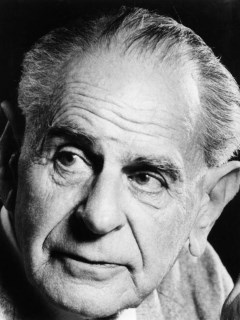
Publication details
Publisher: Springer
Place: Berlin
Year: 2009
Pages: 287-303
Series: Boston Studies in the Philosophy of Science
ISBN (Hardback): 9781402093371
Full citation:
, "Popper's communitarianism", in: Rethinking Popper, Berlin, Springer, 2009


Popper's communitarianism
pp. 287-303
in: Zuzana Parusniková, Robert S. Cohen (eds), Rethinking Popper, Berlin, Springer, 2009Abstract
In this chapter, I argue that Karl Popper was a communitarian philosopher. This will surprise some readers. Liberals often tout Popper as one of their champions. Indeed, there is no doubt that Popper shared much in common with liberals. However, I will argue that Popper rejected a central, though perhaps not essential, pillar of liberal theory, namely, individualism. This claim may seem to contradict Popper's professed methodological individualism. Yet I argue that Popper was a methodological individualist in name only. In fact, methodological individualism faded from Popper's vocabulary as he moved institutions and situational analysis more firmly to centre-stage. Popper's focus on institutions and situations constitutes what I call his communitarianism. If my interpretation is correct, then theorists in the socio logy of scientific knowledge and communitarian epistemology should reconsider their long-standing distrust of Popper's philosophy. Indeed, they may have much to gain by treating Popper as a friend rather than a foe.
Cited authors
Publication details
Publisher: Springer
Place: Berlin
Year: 2009
Pages: 287-303
Series: Boston Studies in the Philosophy of Science
ISBN (Hardback): 9781402093371
Full citation:
, "Popper's communitarianism", in: Rethinking Popper, Berlin, Springer, 2009

